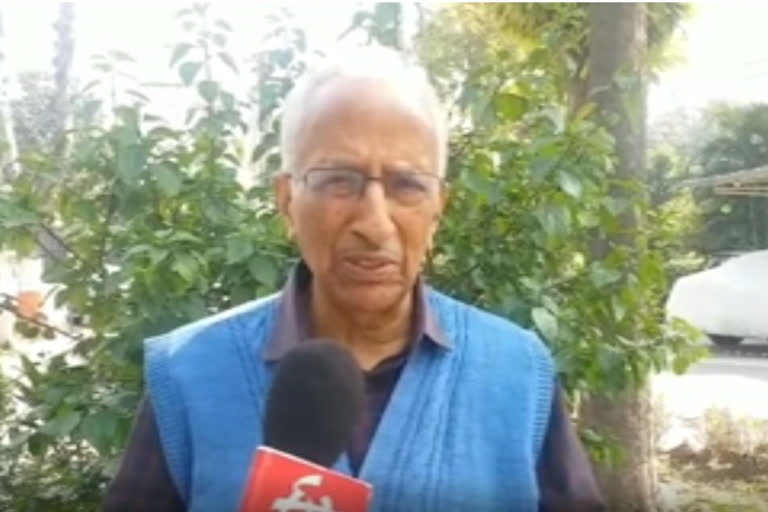New Delhi: Expressing concern about the interaction and handling of crimes in tribal areas by the State police forces, a Parliamentary committee has suggested to the Union Ministry of Home Affairs (MHA) to inculcate knowledge about tribal customs and traditions among the security forces who are deputed in the tribal areas.
A parliamentary committee on Home Affairs headed by Congress MP in the Rajya Sabha Anand Sharma voiced its concern about the handling of crimes in tribal areas. The committee opined that a tribal accused should be treated in a tactical way honouring their customs and traditions.
"Remodeling, restructuring and reorienting of the syllabus of training should be based on local customs and tradition of the residents of the area as the handling of the tribals the police sometimes create a reaction and also encourage radical groups in the society," the committee said. The committee hailed the efforts of the Rajasthan government in this direction.
To handle violent activities in the tribal area as well as to train police personnel posted in the tribal belt, Rajasthan government has established Jungle and Field Craft Training Institute at PTS Kherwara in Udaipur. The first course of six weeks was organized and 36 police personnel were trained. A special budget has been provided to hire experts from time to time to educate police personnel to deal with the mob psychology that includes dealing with tribals and other unruly masses.
Also read: MHA accords security cover to more BJP candidates in UP, Punjab
The Parliamentary committee believes that a separate training module is needed for the police personnel to tackle crimes in tribal areas. "The SVPNA and NEPA may collaborate with the state training institutes to include the study of the cultural gap among the tribes, and include their aspirations and tradition as a part of the training curriculum of the police personnel," the committee suggested.
The committee suggested that the training manual of the states may also be suitably amended so that the police officers are made aware of local traditions and customs, particularly of the tribals and other vulnerable groups. "Police personnel posted in the tribal belt should have regular interaction with the tribal leaders, NGO activists, non-State representatives like the lawyers, university professors along with scholars having specialization on tribal issues for better handling of the crimes in tribal areas," the committee said in its report.
Supporting the suggestions of the Parliamentary committee, Prakash Singh, former director-general of BSF told ETV Bharat that security forces who are being assigned to operate in tribal areas have no idea about the cultural background of others since they are deputed from different parts of the country. "The police and other security forces, who are inducted to depute in the tribal areas, must know the cultural background of the tribals. They must be appraised of tribal culture and traditions," said Singh. He said that when the security forces deal with the tribals, "they must deal with friendly manner." "...If you don't know the tribal customs there are chances that you might antagonise them," said Singh.



